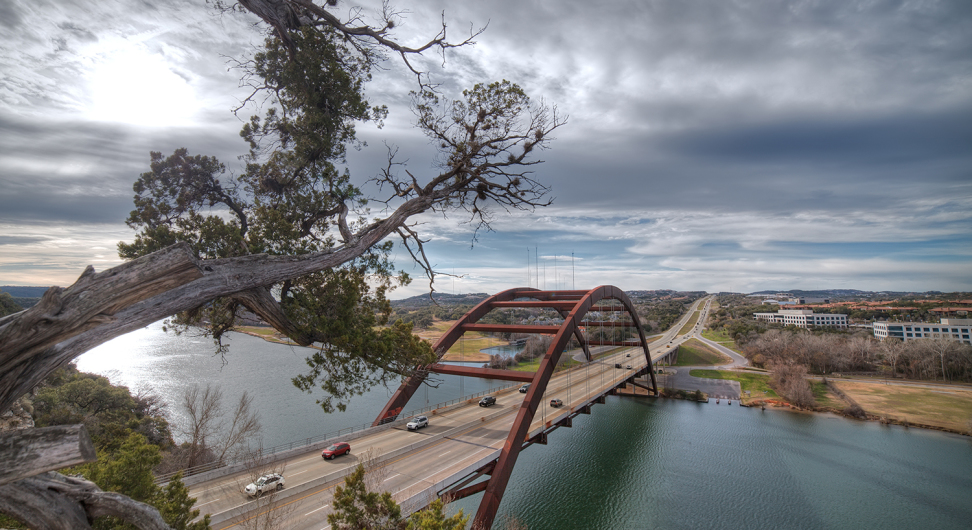Working to Live in Austin, a City with a Reputation for Sale
Austin is a place with a good rep. Sitcom characters have started moving here regularly. Companies are building offices in Austin so they can attend music festivals and call them “work outings.” The world-famous Alamo Drafthouse cinema is here. The Austin City Limits music festival is here. A new identity is here, for both people and the city itself.
“People don’t live in Austin to work,” said filmmaker Robert Rodriguez. “They work to live there.”
Austin’s running queue of newcomers demand jobs to fund a lavish, food-truck-based lifestyle. These jobs have gatekeepers (recruiters) who are consistently leveraging Austin’s cultural identity to entice job seekers. In other words, Austin’s cool rep is for sale.
“A vast percentage of people move here for the culture,” said Casey Wyatt, a recruiter with SpareFoot, a dynamic storage-based startup in the heart of downtown, “It’s a liberal haven in the Bible belt that has wonderful weather and lots to do and you don’t have to break the bank to live here.”
Casey coordinates speed-dating-style interviews, company excursions, and other events that mix up the traditional vetting process, and go hand-in-hand with Austin’s laid back culture.
“People don’t live in Austin to work. They work to live there.”
The city’s elevator pitch is catchy and effective. There’s competition among recruiters to tailor this core idea and present it in a way that appeals to all the skilled people coming here looking for a new path.
“There are a number of businesses moving to Austin every day,” said Melissa Gadd, career services manager at MakerSquare. She cited Visa, Amazon, Tableau, and Under Armour as examples.
“Most often, they’re expected to build out their teams once they get here,” she said. “It’s almost like companies play musical chairs with the candidates and have to up the ante each time, with perks and salary, to attract the right one.”
Melissa helps place graduates of MakerSquare’s software development education program. According to the National Center for Education, there will be 2,400 openings for software developers between 2012 and 2017, and currently, less than 25 percent could be filled with regional college graduates.
“MakerSquare, an accelerated learning program for software developers, is hoping to fill the tech talent gap in the community,” Melissa said.
In Austin, the tech sector is driving both job creation and skill acquisition. The city has become infused with tech-savvy individuals and companies because its culture caters not only to their work style, but their extracurricular pursuits as well.
“No other city in the nation is like that,” Casey said.
People are working to live in Austin because it’s a very interesting time to be here.
Nick Bachan is a digital content coordinator with Dell’s Experience Design & Automation team, a podcaster and a producer of tweets.
This work is licensed under a Creative Commons Attribution-ShareAlike 4.0 International License.


